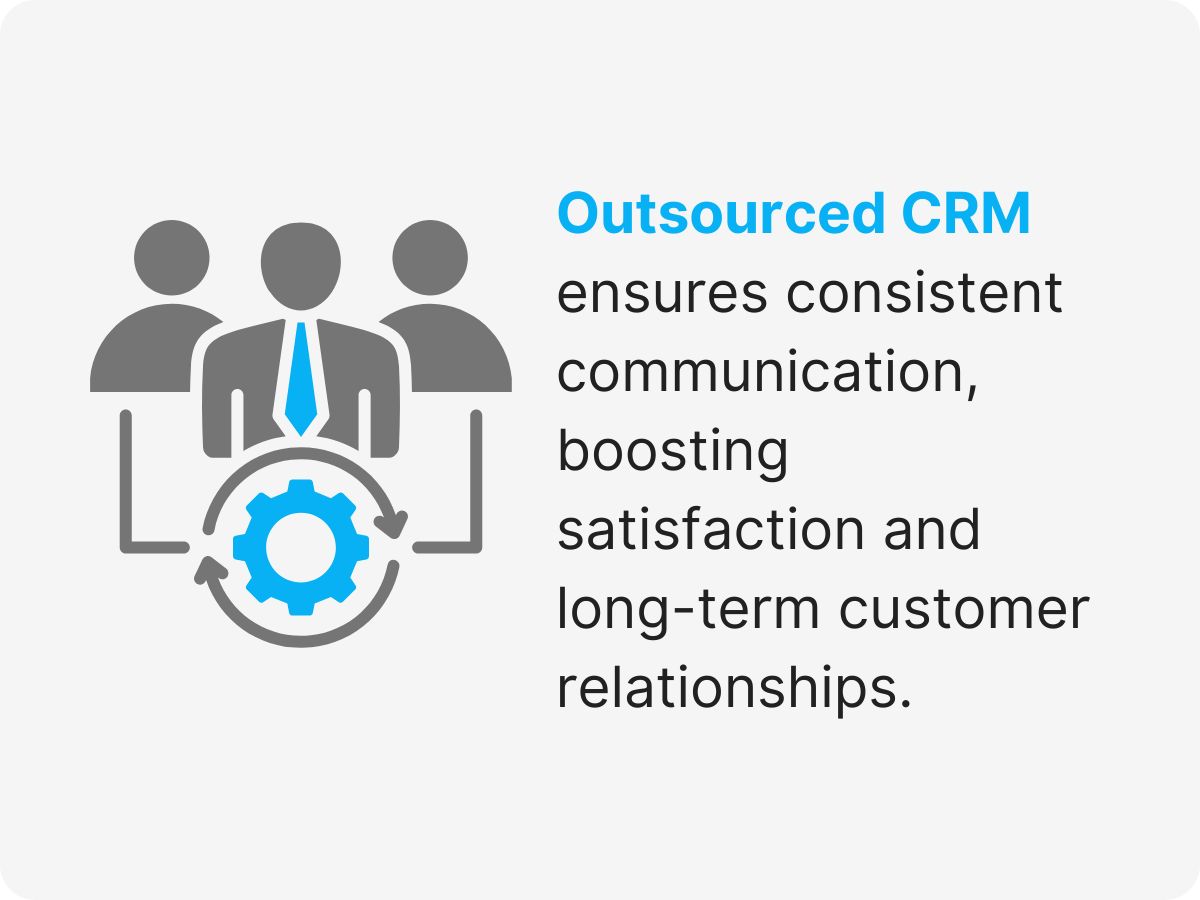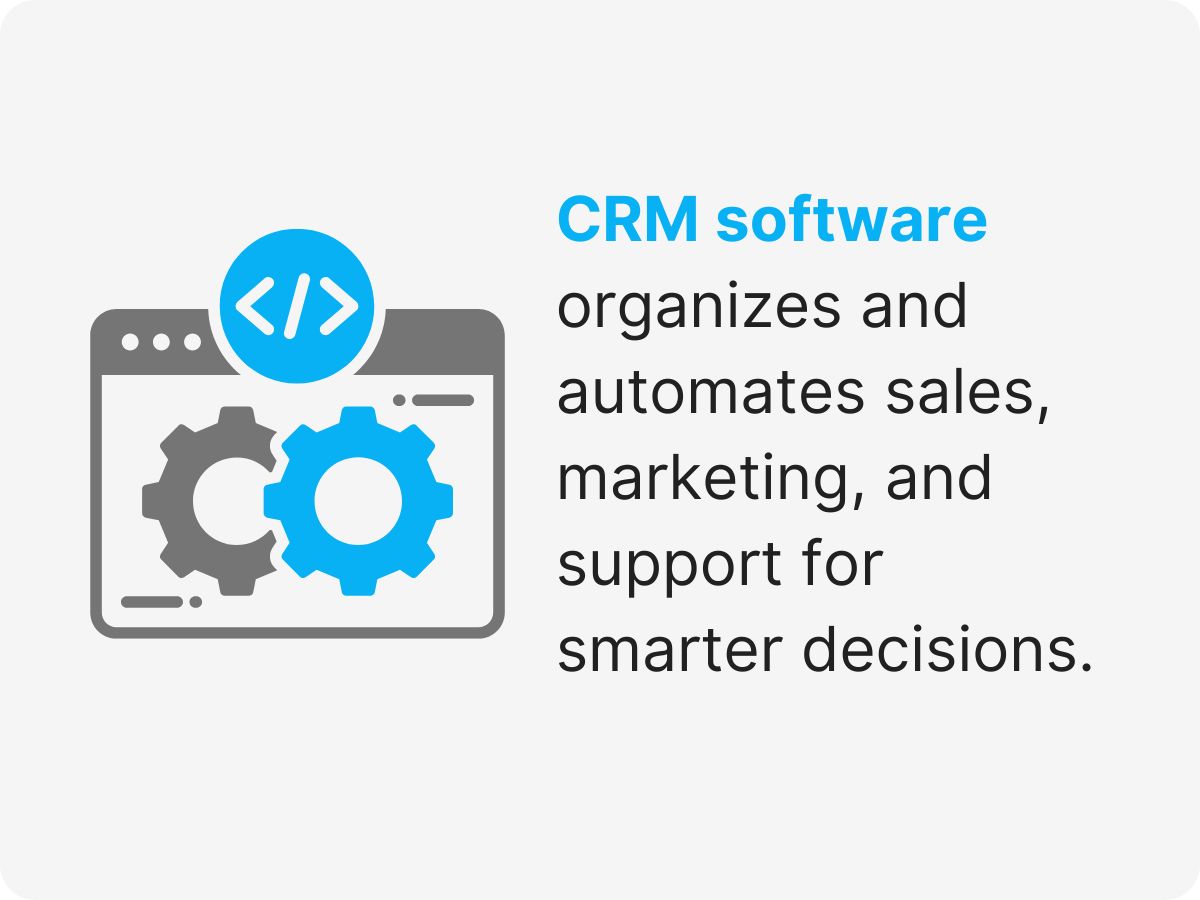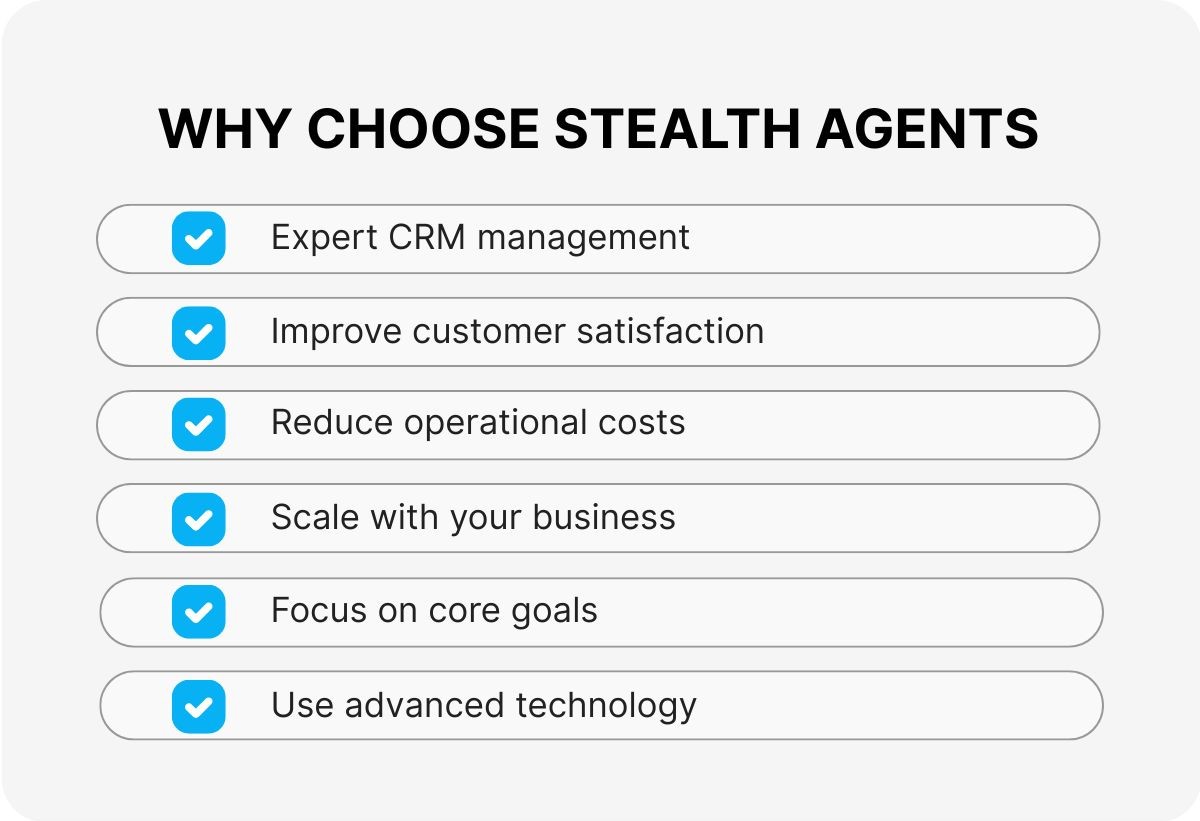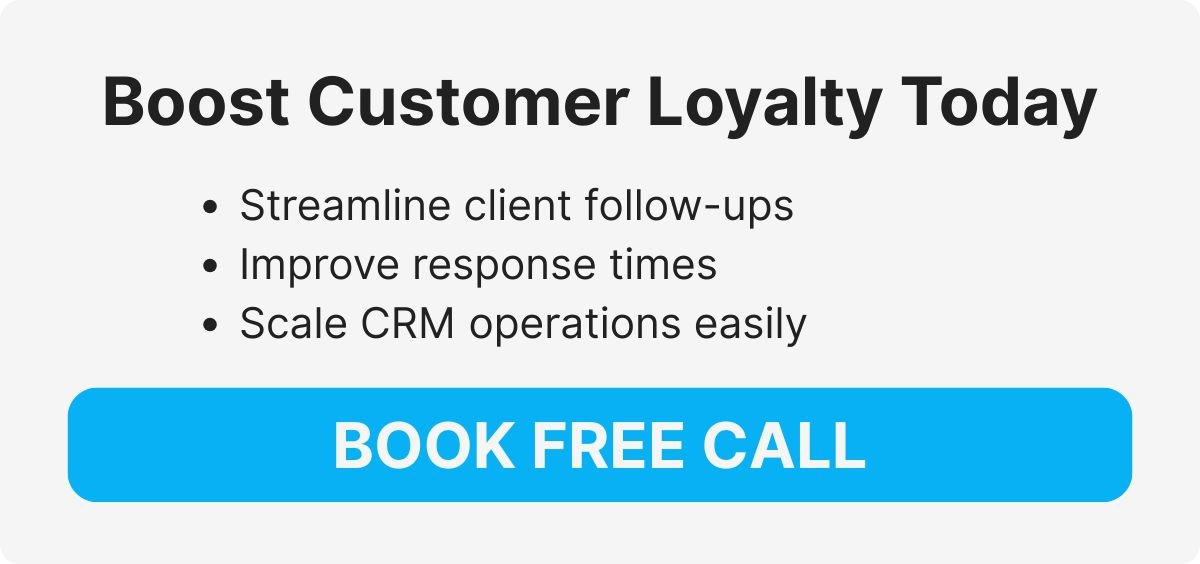You worked incredibly hard to land that new client. You spent hours on the proposal, days on the negotiation, and weeks ensuring the onboarding went smoothly.
But six months later, you get that dreaded email saying they are moving to a competitor. It stings, and it hurts your bottom line. Most of the time, clients don’t leave because your product is bad. They leave because they feel indifferent about your service.
They feel like just another number on a spreadsheet because you stopped paying attention to them. When you are busy running a business, checking in on happy clients often falls to the bottom of the to-do list.
This is the “leaky bucket” problem. You pour all your energy into filling the bucket with new leads, but you have holes in the bottom where existing customers are slipping out.
You cannot fix this by working harder or cloning yourself. The solution is building a system that nurtures these relationships for you. This is where outsourcing relationship management changes the game, and with an outsource relationship management price rate that fits your budget, it’s an investment worth considering.
What is Customer Relationship Management?
Customer Relationship Management (CRM) is a strategy and set of practices that businesses use to manage and analyze interactions with current and potential customers.
CRM outsourcing services aim to improve business relationships, enhance customer satisfaction, and drive sales growth.
This is typically achieved through CRM software, which helps companies organize, automate, and synchronize sales, marketing, customer service, and technical support processes.
By leveraging CRM systems, businesses can gain insights into customer behavior, streamline processes, and improve customer retention.
What is CRM Used For?
CRM, or Customer Relationship Management, tracks and manages interactions with customers to enhance relationships and drive business growth.
Companies often rely on crm management services to centralize customer data, streamline communication, and analyze customer behavior.
For industries like IT, crm for its service providers is particularly valuable in organizing client details and ensuring timely responses.
The growing crm outsourcing market and customer relationship management outsourcing market allow businesses to outsource crm services for improved efficiency and cost savings.
Outsourcing crm or using crm outsourcing services makes it easier to focus on core operations while maintaining strong customer relationships through dedicated customer relationship management services.
Why Relationship Management Is Key to Client Retention
If you do not water a plant, it withers. The same logic applies to your business relationships. When communication dries up, trust begins to fade. Clients start to wonder if you still care about their success or if you just wanted their money.
1. The Cost of Silence
Lack of follow-ups or delayed responses are the silent killers of retention. When a client sends an email and waits 48 hours for a reply, they feel unimportant. When they hit a milestone and you don’t acknowledge it, they feel unseen. Disorganized communication creates a gap where doubt creeps in. Once a client doubts your commitment, they start looking at your competitors.
2. Your Team Is Overloaded
Your core team is likely focused on delivery and putting out fires. They are trying to get the product out the door or finish the service. They often lack the bandwidth to simply “check in” or manage the emotional side of the client relationship. Overloaded teams struggle to manage relationships effectively because they are stuck in the weeds of daily operations.
3. The Metrics Don’t Lie
Proactive relationship management is the single biggest factor in increasing lifetime value (LTV). Studies consistently show that increasing customer retention by just 5% can increase profits by 25% to 95%. You need a dedicated resource to manage this. A virtual assistant for client management can handle client communication and consistent follow-ups, ensuring no one slips through the cracks.
Benefits of Outsourcing Relationship Management
You might think you need to hire an expensive, full-time account manager to fix this. That is a common misconception. Outsourcing this function is often smarter, faster, and more profitable.
1. Consistency Is King
When you outsource, you guarantee consistent touchpoints. An in-house employee might get pulled into internal meetings or other projects. An outsourced professional has one job: manage the relationships. They ensure every client gets a check-in on a set schedule, regardless of how busy your office is.
2. Focus on Your Core Business
You started your business to do a specific thing, not to spend all day answering “just checking in” emails. Outsourcing frees up your internal teams to focus on core business activities. Your sales team can focus on closing new deals, and your product team can focus on building, while your outsourced team handles the nurturing.
3. Scalable Support
As you grow, your need for relationship management grows. Hiring full-time staff is slow and risky. Outsourcing provides scalable support that grows with your business. You can add more hours or more assistants as your client base expands without the headache of HR, benefits, or long-term contracts.
4. Better Experience, Less Risk
A dedicated relationship manager improves the customer experience through timely follow-ups. They catch issues before they become reasons to cancel. This significantly reduces the risk of losing high-value clients. A virtual assistant for business operations ensures that the operational side of these relationships runs smoothly and reliably.
Key Tasks an Outsourced Relationship Manager Handles
You might be wondering what exactly this person would do all day. An outsourced relationship manager is not just a glorified secretary. They are the frontline defense against churn. Here are seven critical areas they manage to keep your clients happy and your revenue stable.
1. Managing CRM Updates and Interaction Tracking
Your Customer Relationship Management (CRM) software is only useful if the data inside it is accurate. A virtual assistant takes ownership of this database to ensure every detail is current. They log every call, save every email, and update contact information so your team never looks unorganized. When a client mentions they are moving offices or changing roles, the VA updates the record immediately. This prevents embarrassing mistakes like calling a client by the wrong name or sending mail to an old address. A clean CRM allows you to segment your audience and send the right message to the right person at the right time. It turns a messy list of names into a powerful tool for retention.
2. Scheduling Follow-Up Calls and Meetings
The back-and-forth dance of finding a meeting time is frustrating for everyone involved. An outsourced manager removes this friction entirely by managing your calendar and coordinating with the client. They proactively reach out to clients to book quarterly business reviews or casual check-ins. These assistants handle the rescheduling if something urgent comes up, ensuring the client never feels blown off. They send reminders to both you and the client so no one forgets the appointment. This ensures that face-to-face time happens regularly, which is vital for building trust. It makes your business look professional and respectful of the client’s time.
3. Executing Email Campaigns and Engagement Reminders
Staying top-of-mind is essential, but writing individual emails to hundreds of clients is impossible. Your VA manages email campaigns that keep your business relevant without being annoying. They can segment your lists and send personalized newsletters, industry updates, or helpful tips. These assistants monitor open rates and replies, alerting you if a specific client seems disengaged. They also set internal reminders for your team to reach out personally when it matters most. This consistent flow of value keeps clients engaged between major purchases or projects. It builds a habit of reading your content and trusting your expertise.
4. Onboarding New Clients and Keeping Them Informed
The first few weeks of a new client relationship are the most dangerous period for churn. An outsourced manager ensures the onboarding process is smooth, welcoming, and clear. They send the welcome packets, schedule the kickoff calls, and ensure the client has access to all necessary portals. These assistants check in regularly during the first month to answer simple questions and ease any anxiety. They act as a guide, holding the client’s hand until they are fully settled. This sets a positive tone for the entire relationship and builds immediate confidence. A strong start leads to a long tenure.
5. Tracking Client Satisfaction and Reporting Insights
You cannot fix a problem if you do not know it exists. Your relationship manager is responsible for taking the temperature of your client base. They send out Net Promoter Score (NPS) surveys and feedback forms at key milestones. They monitor replies and flag any negative feedback for immediate attention from leadership. These assistants also compile reports that show you trends in customer happiness or common complaints. This data allows you to make strategic decisions to improve your service. It changes your approach from reactive damage control to proactive improvement.
6. Sending Personal Touches and Gifts
Business is personal, and small gestures go a very long way in building loyalty. Your VA keeps track of client birthdays, company anniversaries, and personal milestones. They can organize the sending of digital cards, physical gifts, or handwritten notes. When a client sees that you remembered their 5th anniversary of working with you, it creates an emotional bond. These tasks are often the first to be dropped by busy internal teams, but they are crucial. An outsourced manager ensures these moments are celebrated every single time. It humanizes your brand.
7. Managing Invoicing Follow-Ups and Admin
Money conversations can be awkward and can sometimes damage a relationship if handled poorly. A virtual assistant can handle the administrative side of the relationship with professional distance. They can follow up on unpaid invoices or expiring contracts with polite, firm reminders. This keeps the relationship with the core account manager focused on strategy and success, not collections. They ensure that billing questions are answered quickly so that payment friction doesn’t cause frustration. They keep the administrative side of the account clean and compliant. A reliable virtual assistant handles these critical tasks dependably, protecting your cash flow and your relationships.
How Outsourcing Improves Client Retention
The connection between outsourcing and retention is simple: attention equals retention. When you outsource this function, you are buying insurance against neglect.
1. Consistent Follow-Ups Mean Repeat Business
Clients buy from people they remember. Because your VA ensures you are always in their inbox or on their calendar, you are the first person they think of when they have a new need. Consistent follow-ups lead directly to higher repeat business.
2. Better Experience Improves Referrals
Happy clients talk. When a client feels taken care of—when their emails are answered and their milestones celebrated—they tell their network. Outsourcing relationship management creates a premium experience that turns clients into advocates. This generates a referral loop that grows your business for free.
3. Leadership Can Focus on Strategy
Finally, this approach frees you to work on the business, not in it. When you aren’t worried about who needs an email reply, you can focus on strategic initiatives that improve the product. A better product combined with excellent service is an unstoppable combination. This reduces client churn and boosts long-term revenue.
Why Stealth Agents for Outsourced Customer Relationship Management Services?
Choosing Stealth Agents for outsourced Customer Relationship Management (CRM) services offers several compelling advantages.
Customer management services bring expertise and experience, providing specialized knowledge to implement effective customer engagement strategies.
This can lead to improved customer satisfaction. Outsourcing to Stealth Agents is cost-effective, reducing the need for hiring and training in-house staff while still accessing high-quality services.
They offer scalable solutions that can grow with your business, providing flexibility to meet changing demands. By handling CRM tasks, Stealth Agents allow firms to focus on core activities and strategic goals, enhancing overall efficiency and productivity.
Additionally, they utilize advanced CRM technologies, ensuring businesses benefit from cutting-edge solutions and valuable customer insights. These benefits make Stealth Agents an attractive option for enhancing customer management outsourcing capabilities.
Takeaways
Outsourcing Customer Relationship Management (CRM) services can be a strategic move to enhance your customer interactions while keeping costs manageable.
By tapping into specialized expertise, you ensure your clients receive personalized, prompt, and efficient service.
Whether you aim to strengthen customer loyalty or improve overall engagement, CRM outsourcing offers scalable solutions tailored to your business needs.
Additionally, when you outsource a virtual assistant skilled in CRM, you gain dedicated support for seamlessly managing client communications, data, and relationships.
Leverage outsourced CRM services to Work with the provider to ensure that the CRM services can adapt to changing business needs. And drive growth without the overhead of in-house operations.
Do you want to keep your customers happy? Outsourcing your customer support can save you money and time. Let our skilled virtual assistants handle your customer needs so you can focus on growth. Get started today
Frequently Asked Questions
Which industries benefit most from outsourced customer support services?
Industries like healthcare, e-commerce, SaaS, financial services, and telecommunications benefit the most. These industries handle a lot of customer questions, need 24/7 support, and require knowledge of specific rules. Insurance companies and real estate agencies also use outsourced support for tasks like setting appointments, processing claims, and qualifying leads.
What are the average hourly rates for outsourced customer support services?
Hourly rates vary based on the type of service and location. Basic services, such as chat support, typically cost less, while specialized roles, such as technical support or executive assistance, may have higher rates. Factors like language requirements, industry expertise, and the inclusion of phone support can also influence the cost.
How do you measure ROI from outsourced customer support services?
You can measure ROI by tracking customer satisfaction (CSAT), how often issues are solved on the first try, response times, and customer retention. Compare outsourcing costs to what you’d spend hiring in-house staff. Look at how it affects revenue through better conversion rates, fewer cancellations, and higher customer lifetime value.
When should small businesses consider outsourced customer support services?
Small businesses should think about outsourcing if they get more than 50 customer questions a day, spend over 20 hours a week on support, or get complaints about slow responses. It’s also a good idea when scaling up, launching new products, or needing 24/7 help without hiring full-time staff.
What communication channels do outsourced customer support services typically cover?
They usually handle email, live chat, phone calls, social media messages, SMS/texts, and help desk tickets. Many offer omnichannel support, meaning they manage all platforms like Facebook Messenger, WhatsApp, Instagram DMs, and website forms while keeping conversation history and service quality consistent.
How do outsourced customer support services handle multilingual customer inquiries?
They hire agents who speak the needed languages fluently, like Spanish, French, German, Portuguese, or Asian languages. These agents understand the culture and don’t rely on translation tools, ensuring clear and accurate communication. This helps businesses serve international customers while keeping quality high.
What qualifications should you look for in outsourced customer support service providers?
Look for providers with certifications like ISO 27001 or PCI compliance, experience in your industry, and strong management teams. They should have good training programs, quality checks, and clear performance tracking. Check reviews, ask about their ability to scale, and see if they offer replacement guarantees.
How do outsourced customer support services integrate with existing business software?
They connect with tools like Salesforce, HubSpot, Zendesk, and other help desk software using APIs or direct access. They also work with project management tools like Slack or Trello. Setup involves sharing login details and training agents on your systems.
What are the contract terms and flexibility options for outsourced customer support services?
Most providers offer flexible contracts, from month-to-month to yearly agreements. Many let you scale services up or down for busy seasons, offer free trials, and provide replacement guarantees. Look for contracts with clear performance goals, cancellation terms, and options to adjust services without extra fees.
How do outsourced customer support services maintain brand consistency?
They ensure brand consistency by training agents on your company’s voice, values, and tone. They use approved scripts, templates, and communication guidelines. Regular quality checks and feedback help agents represent your brand accurately across all customer interactions.














